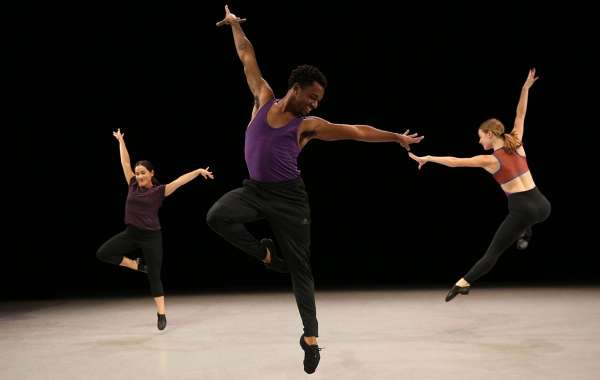- The Roots of Jazz
Historical Origins: Jazz, born from the rich cultural tapestry of African American communities in the late 19th century, has a fascinating history. Understanding this origin provides a solid foundation for appreciating the significance of jazz workshops.
Evolution of Jazz Workshops: As jazz evolved, so did the need for spaces where musicians could come together to learn, experiment, and refine their craft. Jazz workshops emerged as hubs of creativity, nurturing the next generation of musical virtuosos.
III. Understanding Rhythmic Harmony
Basics of Rhythm in Jazz: Jazz is renowned for its intricate rhythms, syncopations, and improvisations. Delving into the basics of rhythm in jazz is essential to grasp the nuances of rhythmic harmony.
Role of Harmony in Jazz Music: Harmony, the simultaneous combination of different musical notes, adds depth and texture to jazz compositions. Understanding how harmony operates is key to achieving rhythmic harmony.
Join our Jazz dance workshops and classes catering to all levels. Featuring esteemed industry educators. Our Workshops include African dance, Afro Latin Fusion, Street Jazz, House, Authentic Jazz and social Dance, Theatrical Jazz, Jo Jo Smith techniques, and Tap. Join us for an educational journey into the history and styles of Jazz Dance.
- Benefits of Jazz Workshops
Skill Development: Jazz workshops provide a fertile ground for honing technical skills, from mastering complex scales to perfecting improvisational techniques.
Collaboration and Networking: One of the unique aspects of jazz workshops is the emphasis on collaboration. Musicians come together, share ideas, and form connections that often extend beyond the workshop setting.
Creative Expression: Jazz, by its nature, encourages creative expression. Workshops offer a safe space for musicians to push boundaries, experiment with sounds, and find their unique voice.
jazz dance intensives 2024: A rhythmic journey awaits! Dive into the world of jazz, refine your technique, and embrace the dance floor with our immersive program.
- Notable Jazz Workshops
Famous Jazz Workshops Worldwide: From the renowned Berklee College of Music in the U.S. to the vibrant Montreux Jazz Academy in Switzerland, jazz workshops span the globe, each with its own distinct contribution to the world of music.
Impact on Musicians' Careers: Many successful jazz musicians attribute their growth and breakthroughs to the experiences gained in workshops. The impact on their careers is palpable and inspiring.
(Continue to develop the content using the outlined headings, maintaining a conversational style, engaging the reader, and incorporating rhetorical questions, analogies, and metaphors as appropriate.)
- Conclusion
As we wrap up our journey through the realms of rhythmic harmony and jazz workshops, one can't help but marvel at the transformative power of music. The fusion of skill development, collaboration, and creative expression in these workshops not only shapes individual careers but also contributes to the rich tapestry of jazz as a global cultural phenomenon. The journey of each musician, from the basics of rhythm to the intricate world of harmony, is a testament to the enduring magic of jazz workshops.
Frequently Asked Questions
- Are jazz workshops only for experienced musicians?
- Jazz workshops cater to musicians of all levels, providing a welcoming space for beginners and seasoned professionals alike.
- How can I find a jazz workshop near me?
- Many music schools, conservatories, and cultural institutions offer jazz workshops. You can also explore online platforms for virtual workshops.
- What instruments are commonly used in jazz workshops?
- Jazz workshops accommodate a wide range of instruments, from traditional ones like saxophones and trumpets to modern additions like synthesizers and electronic drums.
- Can jazz workshops help me with improvisation?
- Absolutely! Improvisation is a core element of jazz, and workshops often focus on developing this skill through guided exercises and group sessions.
- Is rhythmic harmony exclusive to jazz music?
- While jazz is a genre known for its intricate rhythmic harmony, elements of rhythmic harmony can be found in various musical styles, showcasing its universal appeal.




